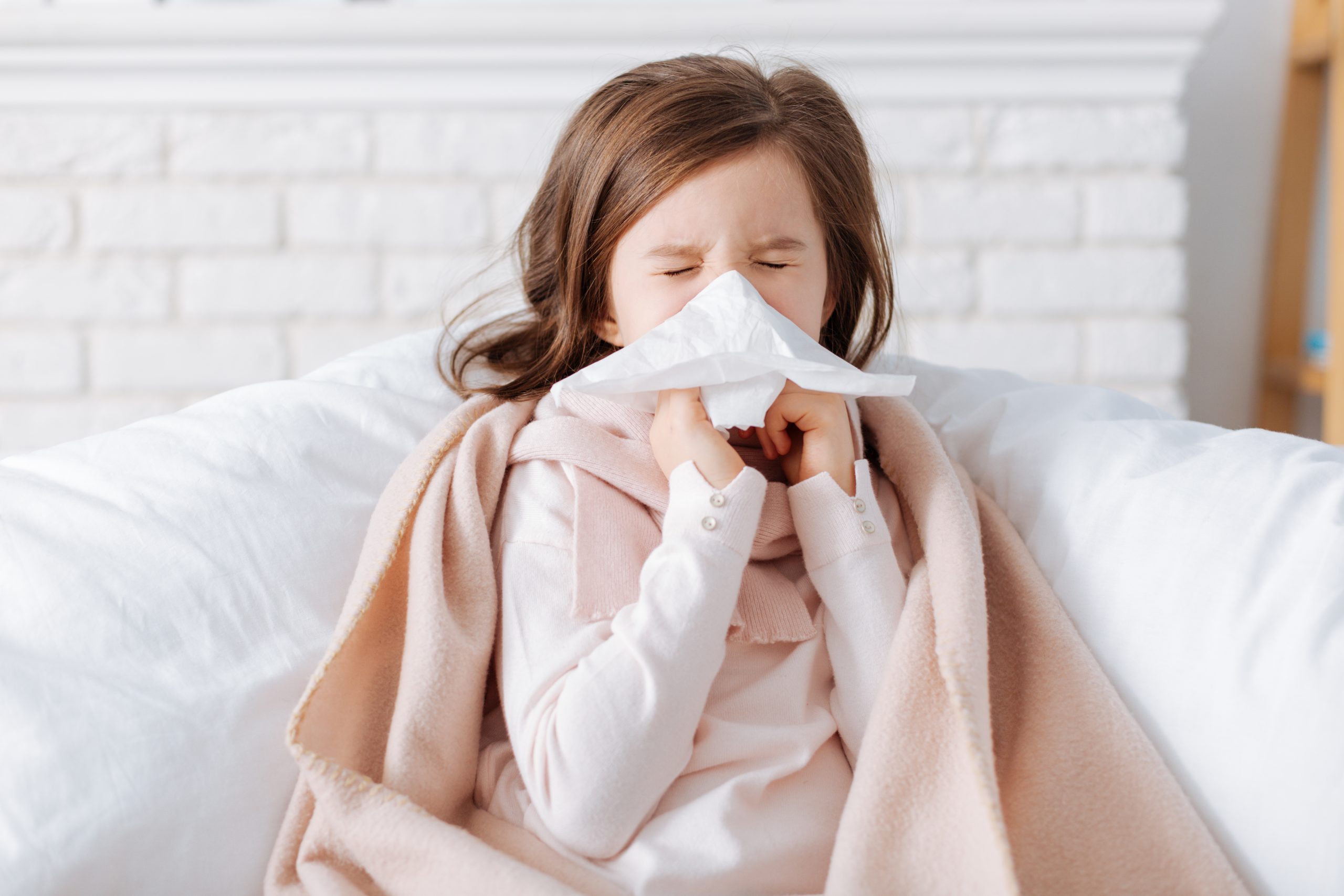This story appeared in The Manistee News Advocate. Read more here.
Cold, flu or COVID-19? It’s like a bad game of duck, duck, goose.
As cold and flu season adds to the latest wave of COVID-19, how can one determine if a stuffy or runny nose is just a cold, the flu or COVID-19?
“Without testing, you can’t be sure,” said Dr. Jennifer Morse, medical director for District Health Department No. 10, Mid-Michigan District Health Department and Central Michigan District Health Department, as well as acting medical director for the Grand Traverse County Health Department.
“The symptoms of flu and COVID-19 are essentially the same, with the loss of taste or smell the only one unique to COVID-19. However, this (loss of taste or smell) is an uncommon symptom for COVID-19 sufferers, so not a reliable thing to count on.”
According to Morse, only one in ten people with COVID-19 report loss of taste or smell. Another “hallmark” symptom of COVID-19 used early in the pandemic — fever — only occurs in less than half of people exhibiting symptoms.
Morse said the most common symptoms reported is cough, muscle aches and pains and headache, with a sore throat or diarrhea occurring in about one in five cases and a runny nose or nausea/vomiting occurring in one in 10.
“Some may just have one or two symptoms,” Morse said. “For example, some may only complain of nausea, diarrhea, and vomiting, while others may just have a scratchy throat and runny nose.
“It is important to remember some have no symptoms at all.”
COVID-19 isn’t the only illness in which symptoms vary from person to person.
“One characteristic of influenza is it tends to start very suddenly, while COVID and colds are more gradual, but that is not always the case either,” Morse said. “Colds tend to have more sneezing and congestion than the flu and COVID, and less body aches and fever, however COVID and flu can be more mild and (be) confused for ‘normal’ colds.”
So, short of wrapping oneself up in a bubble or running to get tested every time one sneeze, how do we navigate this season of germs?
Morse gave some tips:
• Get your flu shot ASAP, get your primary series and boosters for COVID.
• If you are not up to date on other vaccines you need, such as those for pneumonia, whooping cough, etc., get those too
• Wear a mask, whenever you are in indoor public places.
• Wash hands and/or use hand sanitizer frequently
• Follow healthy habits to help keep your immune system strong: manage stress, get enough sleep, avoid tobacco, drugs and alcohol, eat a healthy balanced diet, and exercise.
• If you feel sick, stay home and away from others until you are feeling better.
If you have been exposed:
• Get tested five to seven days after exposure, regardless of vaccination status.
• Quarantine if you have not been fully vaccinated or have not been sick with COVID-19 within the past 90 days.
‘WHAT IF …’
For those who suffer allergies, asthma or chronic rhinitis, determining whether symptoms are COVID-19 or not can be complicated.
Morse recommends comparing the symptoms to whatever your normal is.
“You should know how you usually are and how your symptoms change in certain situations, like if you visit a relative with a dusty house or pet,” Morse said. “If you feel like you normally do for the season or situation, don’t worry.
“If things seem different than usual, or a flair up is not responding to your normal medication or improving like it normally does, you need to say, ‘what if …,’ and get tested for COVID. Many times, we have seen cases start as suspected allergies or an unusual flair up of allergies.”
Another complication in determining symptoms is the every-changing variants of COVID-19. While the delta variant continues to be prominent, the Michigan Department of Health and Human Services reported Thursday the first case of the omicrom variant in Michigan found in a Kent County resident.
Two weeks ago, the World Health Organization flagged the new variant, originally found in South Africa, as concerning due to its high number of mutations compared with other variants.
How that plays out in terms of severity or contagiousness, “It is too soon to tell,” Morse said. “COVID-19 has always had a range of severity from no symptoms, to mild, to rapidly fatal.
“In those with prior infection or that are vaccinated and still get infected, their illness is typically very mild. So, I don’t think it will really change much. However, if people feel well enough to ignore their symptoms and keep working and socializing, it will make it spread further and faster.”
For more information about how COVID-19 symptoms compare to symptoms of colds, flu and allergies, visit Spectrum Health System’s COVID-19 frequently asked questions at www.spectrumhealth.org/covid19.

